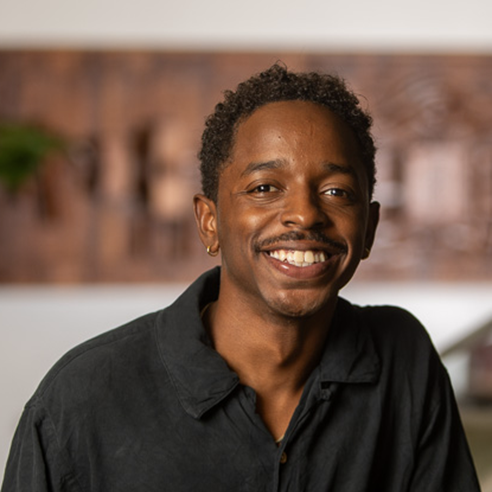By Juan P. Maestre, August 12th 2025
When Cedric Shy talks about community engagement, there’s an energy in his voice that reflects years of learning from passionate advocates and dedicated community champions. As Program Coordinator for Texas Target Communities at Texas A&M University, Shy has become a vital connector in the SETx-UIFL project, developing innovative approaches to make environmental research accessible and meaningful to the communities it aims to serve.
Following in His Father’s Footsteps
Shy’s path to community-engaged research began with a powerful role model at home. Growing up in the City of Houston, he watched his father, Cecil Shy Sr., now an assistant principal, dedicate himself to serving others as both an elementary school teacher at a Title I school and a summer camp director at the YMCA.
“My dad was very much like a community champion,” Shy reflects. “He ran summer camps through the Y.M.C.A., put on little workshops and taught younger kids how to do things, and that just instilled in me this drive to work with communities.”
This early exposure to community service shaped Shy’s career trajectory. As an urban planning undergraduate at Texas A&M, he sought opportunities that aligned with his values. When he discovered Texas Target Communities and their mission to partner with underserved communities across Texas, the connection was immediate. As he puts it, “this is the mission that I want to be a part of.”
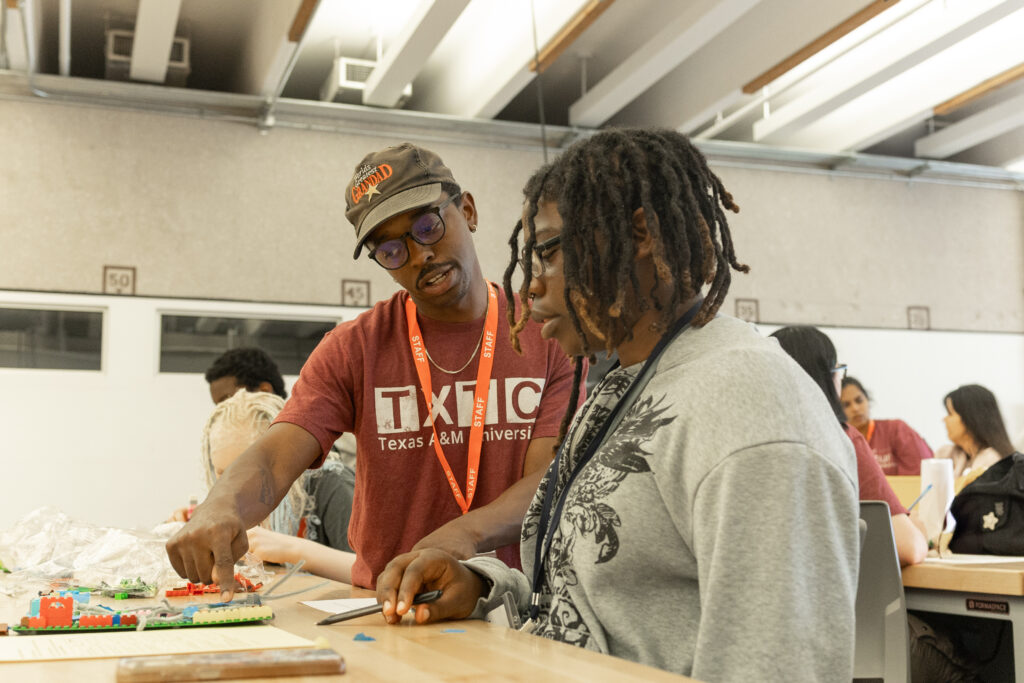
Cedric Shy leading high school students in an urban planning exercise
Amplifying Voices Through Podcasting
One of Shy’s most visible contributions to community outreach is his work on the “Partnerships with Purpose” podcast. Building on earlier conversations started by Texas Target Communities leadership, Shy saw an opportunity to showcase the university-community partnership model and share stories of collaboration.
His approach to each episode follows a consistent but flexible framework: understanding the person behind the work, exploring their current projects, discussing challenges and failures, and envisioning future partnerships. “In every story, I just try to connect who the person is to what they do,” he explains.
The podcast has featured diverse voices, from researchers like Dr. Nathanael Rosenheim discussing community-engaged research practices, to historian Sam Collins sharing the celebratory history of Juneteenth. Shy particularly values how the medium allows guests to speak authentically about their work and experiences, removing barriers between academic research and community understanding.
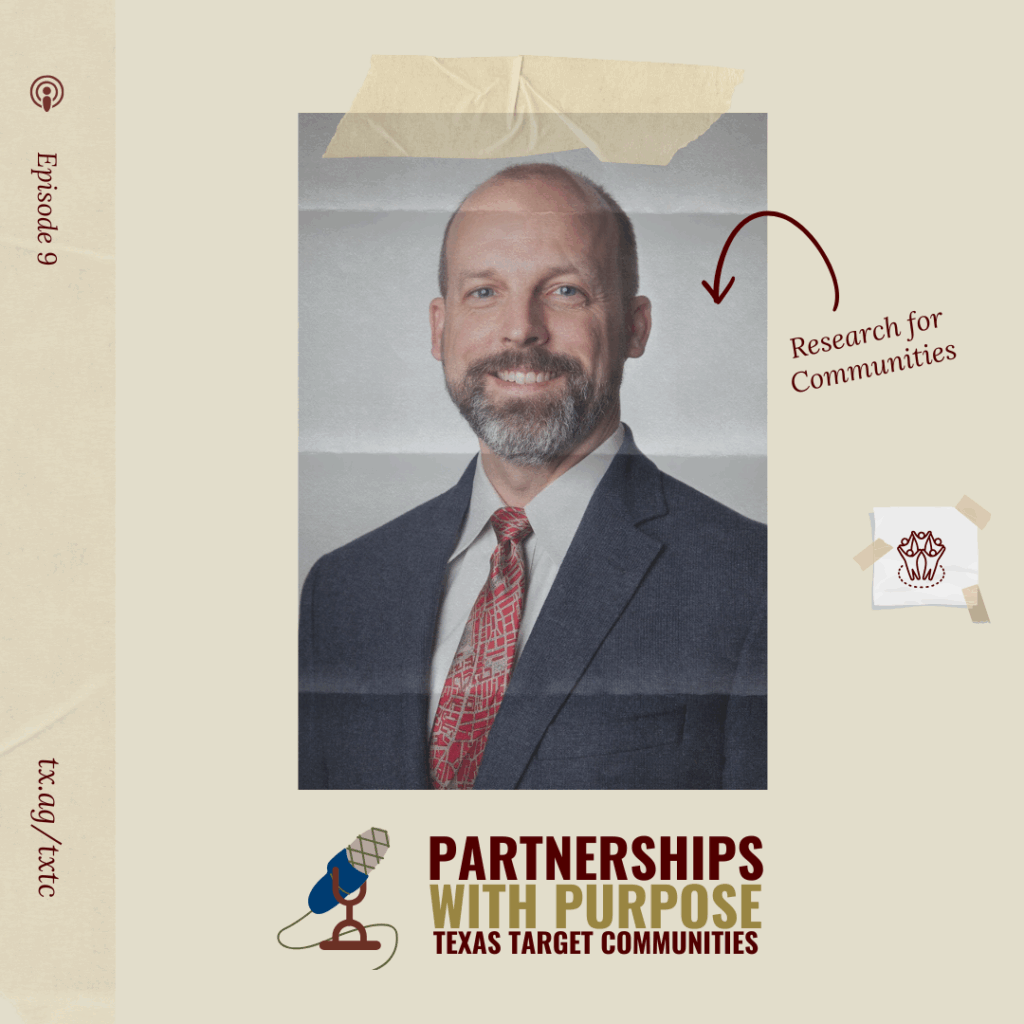
Cover for episode 9 with Dr. Nathanael Proctor Rosenheim
Facilitating Student-Community Connections
Perhaps nowhere is Shy’s bridging role more evident than in his collaboration with Dr. Sungmin Lee‘s “Open Space and Land Use Planning II” class at Texas A&M. Working with graduate students on real-world challenges in Port Arthur, Texas, Shy served as both educator and facilitator, helping students understand how to engage meaningfully with communities while maintaining academic rigor.
The collaboration produced compelling infographics addressing flooding, pollution, and safety challenges in Port Arthur. Shy’s role extended beyond logistics – he helped students prepare for community interactions, facilitated field trips, and guided them through the delicate process of designing for communities other than their own.
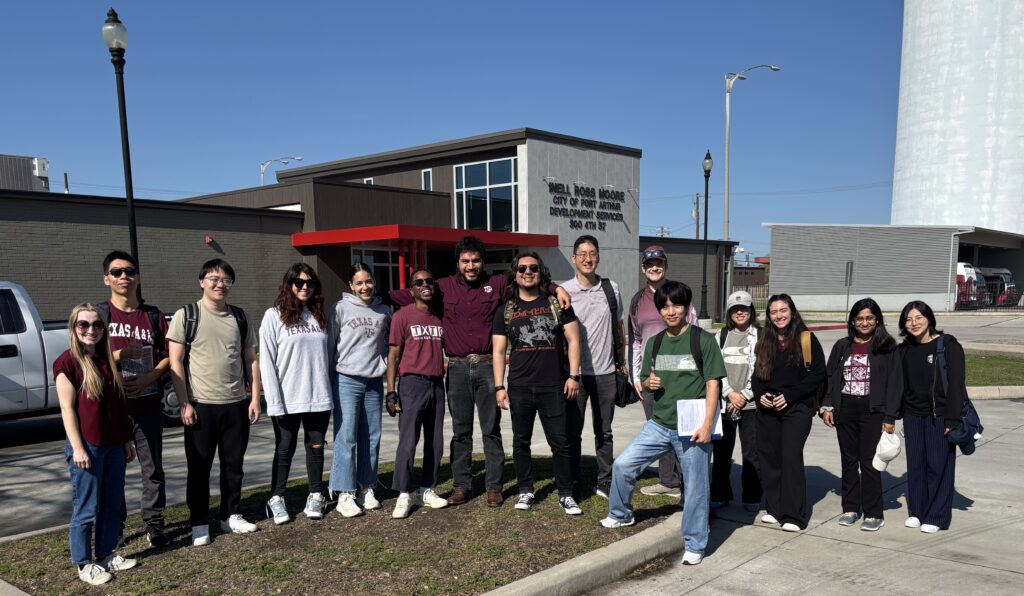
Students in Open Space and Land Use Planning II during our Port Arthur Visit
“I got to teach the students about how to engage with communities, how to tailor their work for the communities that they’re serving, how to step into community and interact with community members,” Shy explains. His emphasis on helping students understand that they were designing for someone else’s home and livelihood proved crucial to the project’s success.
The flood team’s “Ripple Effect” approach particularly impressed Shy and community leaders. Working with SETx-UIFL data and research insights, the students demonstrated a deep understanding of existing city initiatives and sought to enhance ongoing flood mitigation efforts rather than proposing entirely new solutions. “It didn’t feel like they were just trying to give some cool, unique ideas. I was very impressed by how they had a really good understanding of what the city was doing, and their designs sought to enhance that.”
A Philosophy of Intentional Connection
Shy’s approach to community engagement is deeply intentional, rooted in what Texas Target Communities calls capacity building across multiple domains – social, economic, environmental, civic, physical, and human capacity. He believes academic research and student work can directly increase these capacities with proper guidance and relationship-building, particularly for underserved communities that otherwise wouldn’t have the capacity to build.
Central to his philosophy is the importance of removing academic jargon and making research accessible. “We find all the jargon and say, like, how would you say this to someone who doesn’t know it, and they use all the words like remediation and mitigation. And we sit and go, okay, how would you describe it in a way without using the jargon?”
For Shy, success in community-engaged environmental research has a clear benchmark: validation by lived experience. “You can do all this great research. But if it isn’t validated by the lived experience of the community, I wouldn’t say that would be success, whether published paper or not.”
This perspective has been shaped by his direct work with Southeast Texas communities facing flooding and air pollution challenges. Rather than imposing external solutions, Shy and his team focus on connecting existing community advocates with research resources, helping amplify work that’s already happening while providing additional tools and data.
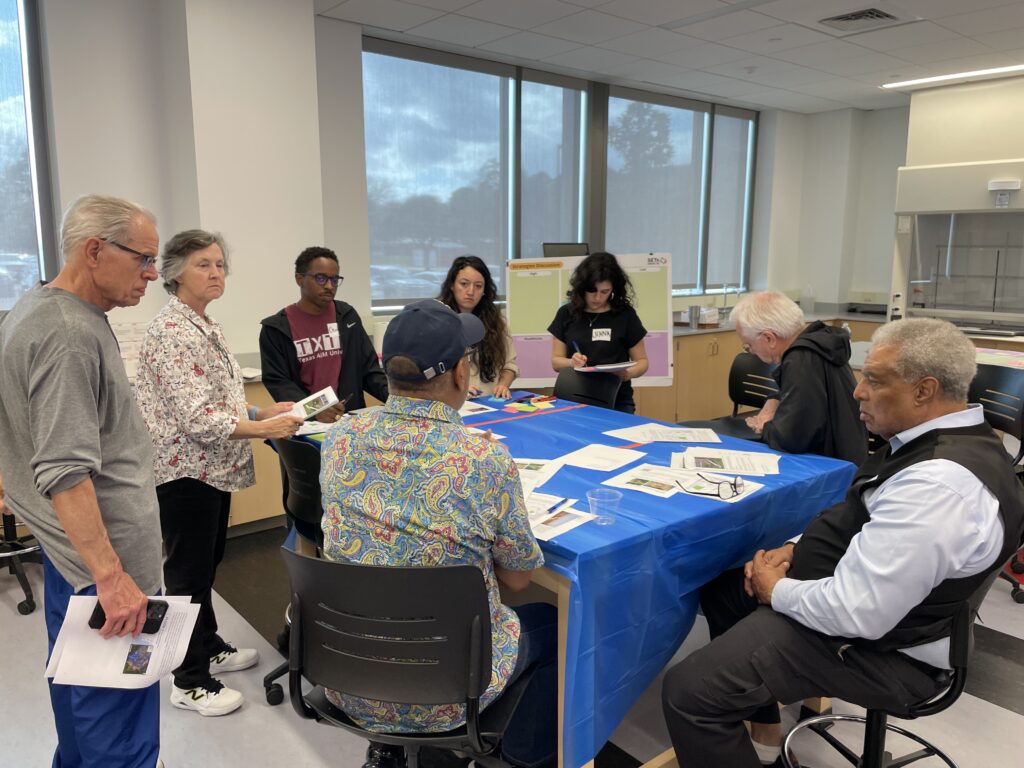
Task force meeting with SETx-UIFL team members. Find more about Task Force engagement here.
Building Trust Through Presence
When asked about his advice for researchers wanting to engage communities, Shy emphasizes the fundamental importance of relationship-building and consistent presence. “Show up and keep showing up, and showing up to those meetings that maybe one or two people show up to, and just keep going and keep listening.”
This commitment to sustained engagement has yielded meaningful moments that continue to energize his work. He recalls early stakeholder meetings where longtime advocates, some with decades of experience, expressed excitement about having academic support for their ongoing efforts. “Seeing this passion from someone who’s probably been in the field for 40 years or so, and still energized and still just as passionate – I was just like, this is someone that I want to keep fanning her flame like I’m getting energy from her. And I’m the young guy.”
Looking Forward: Innovation and Tradition
As Shy looks toward future projects, he’s exploring both traditional community planning work – helping small towns navigate industrial growth while maintaining their character – and cutting-edge technological approaches. Texas Target Communities recently acquired multi-touch interactive screens that could revolutionize community engagement facilitation, allowing for more dynamic, interactive public meetings.
But regardless of the tools involved, Shy remains anchored to a core principle learned from his Texas Target Communities mentors: “It’s not about you.” This philosophy keeps the focus on community needs and ownership, reminding researchers and students alike that they’re working on someone else’s comprehensive plan, someone else’s livelihood, someone else’s home.
“This is someone’s community. This is someone’s livelihood. This is actually for someone else. That’s why I’m doing it. And this is theirs,” he emphasizes. It’s a perspective that transforms how one approaches community-engaged work, removing ego while adding both humility and purpose.
Through his podcast, student collaborations, and direct community engagement, Cedric Shy exemplifies how thoughtful outreach can bridge the often-distant worlds of academic research and community needs. His work with the SETx-UIFL project demonstrates that meaningful community engagement requires not just good intentions, but sustained commitment, cultural sensitivity, and the wisdom to know when to listen, when to connect, and when to step back and let communities lead.

